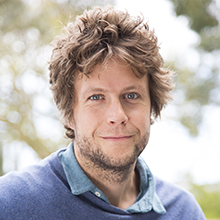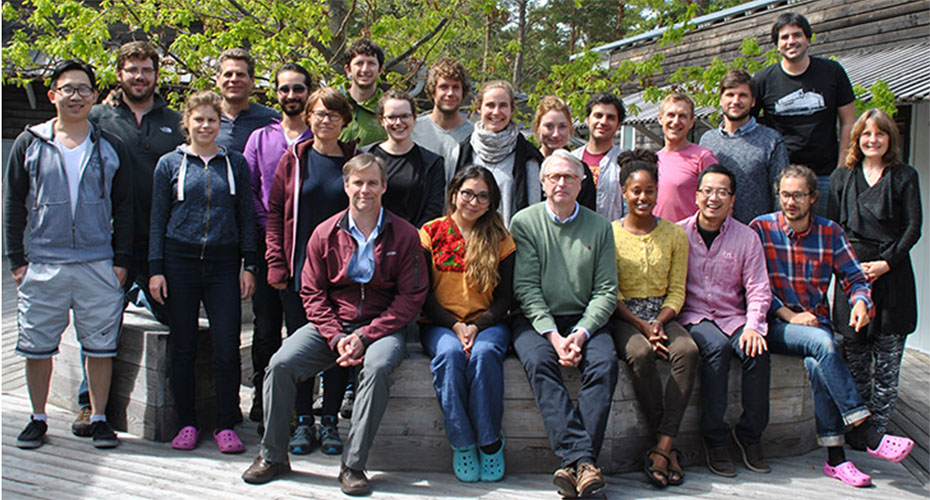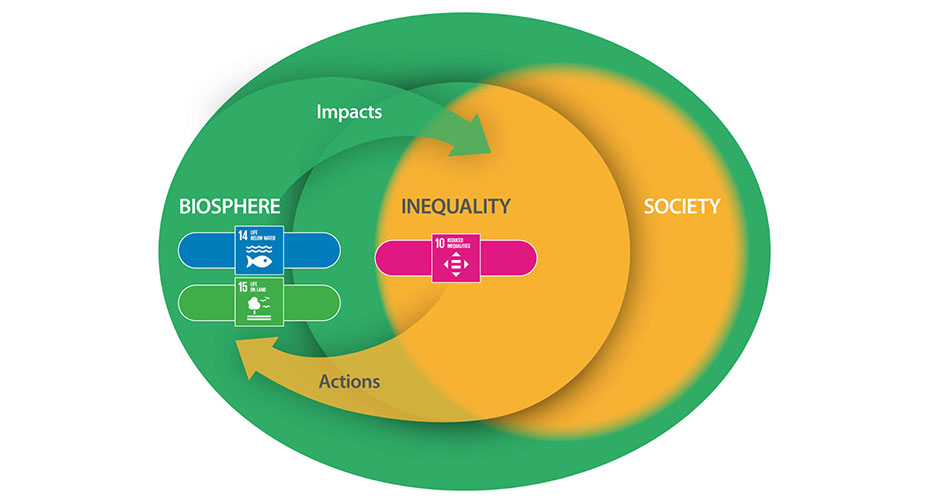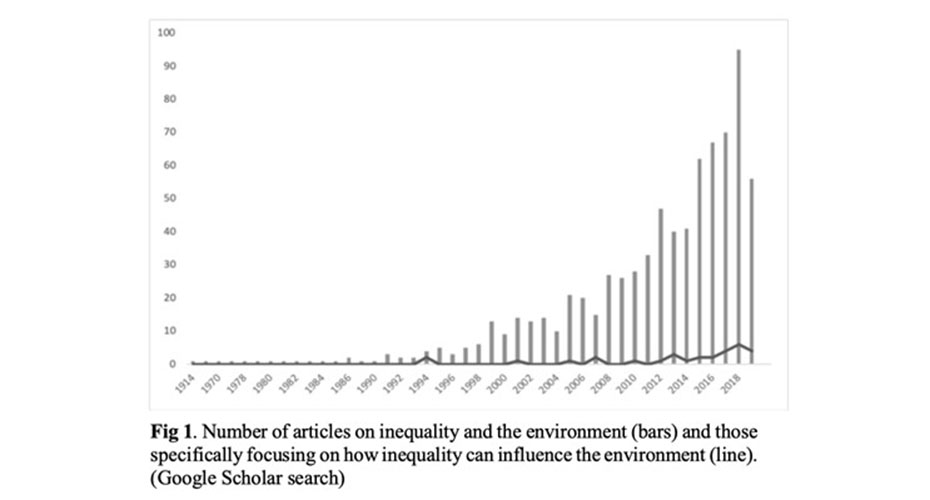Inequality and the Biosphere: Achieving the Sustainable Development Goals in an unequal world
Research overview:
Reducing inequalities in society and maintaining healthy marine and terrestrial ecosystems are pivotal to achieving sustainable development, yet the interactions between these goals have been largely underexplored. Our project aims to identify synergies and trade-offs between reducing inequalities (SDG 10) and safeguarding the biosphere (SDGs 14 and 15).
Key objectives:
Collect and synthesize data at different scales to identify patterns between different types of inequality and environmental indicators.
Investigate critical processes through which inequalities in natural resource production and management systems enable or hinder the achievement of biosphere-related SDGs, as exemplified in the seafood and palm oil industries in Indonesia.
Concurrently engage with stakeholders in local communities in Indonesia, as well as governments, businesses, and NGOs from local to global levels, to identify practices that can harness win/win interactions between SDGs while minimizing trade-offs.
Impact:
Contribute new data and scientific knowledge regarding the interactions between key SDGs and also enable the application of this knowledge for transformative action at the local, regional, as well as global scale.

Whilst behavioural economics research has provided critical insights into understanding and predicting environmental behaviours, an important consideration that remains largely unexplored is to what extent people behave differently given their differing wellbeing and poverty levels. This is particularly important when considering sustainable development which not only strives for environmental sustainability of marine and land based resources but also seeks to address inequality and the eradication of poverty in all its forms. There is a need to further expand our understanding of human behaviours by bringing together a large body of work from the social sciences on human wellbeing with insights from behavioural economics.
Dr Tomas Chaigneau
Hamann, M., Berry, K., Chaigneau, T., Curry, T., Heilmayr, R., Henriksson, P. J., ... & Wu, T. (2018). Inequality and the Biosphere. Annual Review of Environment and Resources, 43, 61-83.
Shepon, A., Gephart, J. A., Henriksson, P. J. G., Jones, R., Murshed-e-Jahan, K., Eshel, G., & Golden, C. D. (2020). Reorientation of aquaculture production systems can reduce environmental impacts and improve nutrition security in Bangladesh. Nature Food, 1(10), 640-647.
PI Carl Folke (Beijer Institute)
Senior advisor Anne-Sophie Crépin (Beijer Institute)
Co-PI's Patrik Henriksson (Beijer Institute and Stockholm Resilience Centre), Emilie Lindkvist (Stockholm Resilience Centre), Juan Rocha (Stockholm Resilience Centre), Caroline Schill (Beijer Institute)
Advisory board Belinda Reyers, Shakuntala Thilsted, Henrik Österblom
Tomas Chaigneau (University of Exeter), Maike Hamann (Stellenbosch University, ZA), Robert Heilmayr (University of California, US), Alon Shepon (Tel Aviv University IL), Andrew Tilman (University of Pennsylvania, US), Tong Wu (Chinese Academy of Sciences), Tracie Curry (University of Fairbanks), Yolanda Lopez-Maldonado, Kevin Berry (Univ. of Alaska), Jonas Hentati-Sundberg (Swedish University of Agricultural Sciences), Amir Jina (University of Chicago), Matías Piaggio (Universidad de la República, Uruguay), Jiangxiao Qiu (University of Florida), Inge van den Bijgaart (Gothenburg University).



